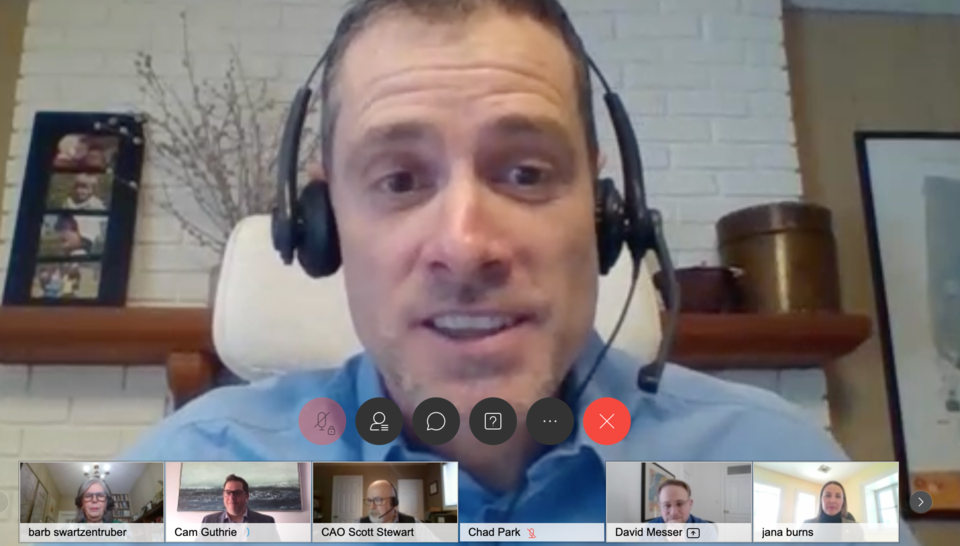An initiative that diverts construction and demolition materials from the landfill is underway and a Guelph company is paying a hefty sum for its establishment.
On Thursday, representatives from Co-operators, the City of Guelph, Wellington County and the Guelph Smart Cities Office launched the Zero Waste Economic Transformation Lab, a new initiative under the Circular Opportunity Innovation Launchpad (COIL).
It aims to apply circular economy theories to develop and test new opportunities to reduce or redirect waste.
As the lab’s founding corporate supporter, Co-operators pledged $350,000 to establish the lab and fund its first project to divert construction and demolition materials from landfills. Ongoing operations are expected to be funded through public and private grants.
“We know that 45 per cent of global carbon emissions are generated when we manufacture new products and construction materials are particularly resource intensive,” said Barb Swartzentruber, executive director of the Smart Cities Office.
“Redesigning systems to recycle and extend the life of materials is an essential part of fighting climate change, and aligns with the Guelph climate change objective.”
Chad Parks, Co-operators vice-president of sustainability and citizenship, said the program is particularly interesting and relevant to the insurance company because it mitigates downstream impacts of waste and emissions that are generated from rebuilding aspects in insurance claims.
“So how will it work? Well, let's say, for example, a flood occurs that impacts local homes or businesses. Through this program when a claim is made, we begin rebuilding. We can identify new markets for salvaged building materials and determine how and where they can be repurposed. This is the circular economy in action, and the impact will be significant because construction and demolition waste is one of the largest contributors to municipal solid waste in Canada,” said Parks.
“The increasing frequency and severity of climate-related risks are impacting our families and businesses from coast to coast to coast. As more Canadian homes and businesses suffer insured losses because of climate change. This puts strain on resources and increases emissions across the value chain.
Mayor Cam Guthrie who worked in the insurance industry for 16 years before becoming a mayor said it's really important to know that economic transformation is at the heart of this program. I
“Climate change isn't just about the environment. It is also about the economy,” said Guthrie.
“And if we have hope for a net-zero world, we need to get smarter about how we use energy and redesign our systems so we waste less and reuse more.”
Manager of COIL, David Messer said currently, only a small fraction of the things we consume are recycled and in most cases, it’s because our economic systems are designed to incentivize waste.
“This is not going to be a desk exercise,” said Messer.
“While the program will be grounded in research and consultation, we will quickly be putting ideas into action and testing piloting and prototyping a new circular economy over here that we hope can scale in other communities across Canada.”



